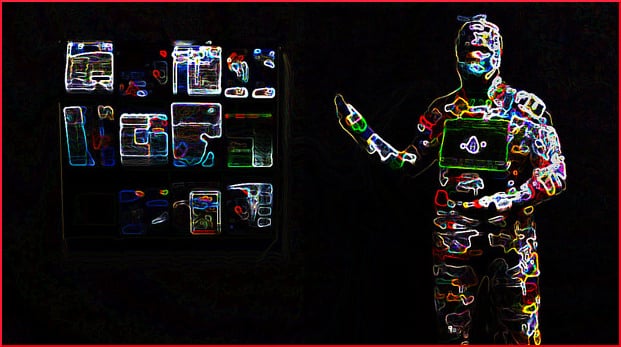
Childhood Obesity News has been discussing wearable technology, and this is more of the same. A couple of years back, the Mayo Clinic announced a partnership with Gentag Inc., with the intention of collaborating on the development of wearable biosensors, “designed to be painless, wireless and disposable,” that deal with diabetes and obesity.
In the bandage is a sensor that communicates via a closed-loop diabetes management system which is compatible with cell phones. The system will allow researchers to monitor movement and develop treatments for obesity and related conditions. Apparently, this technology is still on the drawing board, because there does not seem to be any more recent news of it.
A family affair
By 2017, health writer Tommy Peterson was able to point out that we had reached the point where an accurate electrocardiogram could be obtained with special software on an Apple watch. At Children’s Hospital Los Angeles (CHLA), Dr. Juan Espinoza presided over clinical trials designed to discover whether childhood obesity could be impacted by a structured weight loss program based on the Fitbit activity tracker.
A total of 150 participating families committed themselves to a two-month program that issued Fitbits to both the children and the adults of half the families. That group and the control group (with no activity trackers) were required to follow the same weight loss program. It seems that the main lesson had to do with compliance, as only 60% of the control group even finished the program, as compared to an 85% completion rate for the families with the Fitbits.
Looking ahead to the possibilities for wearable technology, Peterson mentioned voice-activated applications, and the inevitable shift of healthcare out of clinical settings and into homes, thanks to “the mobility and independence inherent in wearables.”
Incidentally, speaking of CHLA, that institution was the site last year of a study on the “Mobile Health Weight Loss Intervention Based on Addiction Approach in Obese Adolescents,” which compared Dr. Pretlow’s W8Loss2Go program with another tertiary care weight management program. This study concluded:
The W8Loss2Go App intervention is feasible to implement and useful in reducing zBMI. This represents a cost-effective, timely and labor efficient method for weight management in adolescents.
Neuroscientist Rachel Kalmar points out that more people will inevitably become involved with wearable technology, whether they want to or not. She mentions employee health programs where the opportunity to opt in and wear a tracking device is not a true choice, because people are penalized for not doing it. She brings up legal cases where Fitbit information has been used in court.
Higher education
Early in 2016, there was a swell of outrage when the public learned that Oral Roberts University required students to buy and wear Fitbits, whose data would be collected and recorded by the school administration. Obviously, such a rule is accompanied by a number of security and privacy implications. It was already mandatory to keep a fitness journal, which some students considered bad enough.
“This American Life” dug more deeply into the story and documented that the Oral Roberts tradition of regulating body size (also known as administrative overreach or outright fat-shaming) goes back almost half a century. In the mid-1970s, skin-fold testing — and in some cases, hydrostatic body fat testing — were obligatory, and at one point the famous clergyman and school founder considered denying graduation credentials to obese students. The radio journalist interviews a woman who was actually suspended from college for being too fat.
Your responses and feedback are welcome!
Source: “Mayo Clinic, Gentag partner to develop wearable biosensors for treating obesity, diabetes,” News-Medical.net, 03/04/15
Source: “3 Healthcare Organizations Call on Wearables to Take Patient Care to the Next Level,” HealthTechMagazine.net, 11/29/17
Source: “Rachel Kalmar on Data Ecosystems,” SoundCloud.com, 2017
Source: “589: Tell Me I’m Fat,” ThisAmericanLife.org, 06/17/16
Photo credit: Global Panorama on Visualhunt/CC BY-SA

 FAQs and Media Requests:
FAQs and Media Requests: 












One Response